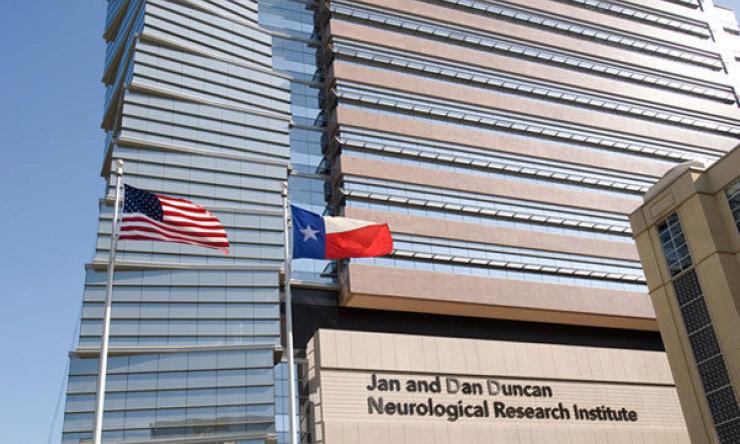Chao awarded Philip R. Dodge Young Investigator Award
Dr. Hsiao-Tuan Chao, assistant professor of pediatric - neurology, molecular and human genetics, and neuroscience at Baylor College of Medicine and researcher at the Dan and Jan Duncan Neurological Research Institute (NRI) at Texas Children’s Hospital, has been awarded the highly competitive 2020 Philip R. Dodge Young Investigator Award by the Child Neurology Society.
The Dodge award honors physician-scientists who are active members of the Child Neurology Society and who have made great strides in neuroscience research and advance the field of child neurology for the benefit of patients and their families. Chao will receive research funding and present at the organization’s annual meeting in the fall. She will present the Dodge lecture at the CNS-ICNA Conjoint meeting in October.
“I have known Tuan since 2005 when she joined my laboratory for her graduate training. The creative young scientist who impressed me then has taken off on a stellar trajectory of making significant contributions to the biology and genetic underpinnings of rare neurologic diseases,” said Dr. Huda Zoghbi, professor and director of the NRI and a Howard Hughes Investigator at Baylor. “It has been wonderful to see Tuan flourish throughout her training and now embark on her own research program as a physician, scientist, mentor and educator.”
Chao, a McNair Scholar, studies the genetic and neural mechanisms underlying neurodevelopmental and psychiatric disorders such as intellectual disability, epilepsy and autism. Her lab at the NRI integrates mechanistic studies of well-defined single gene disorders in fruit flies and mice with human genetics to decipher how genetic alterations perturb neuronal signaling in the brain.
Funding from the 2020 Philip R. Dodge Young Investigator Award will support her work focused on deciphering the molecular and cellular mechanisms governing excitatory and inhibitory neuronal signaling and understand the associated neural circuit alterations to disease. Chao’s research will broaden our understanding of the transcriptional regulation of neural circuits and advance therapeutic strategies for neurodevelopment and psychiatric disorders.
Chao earned her bachelor of science and bachelor of arts degrees from the University of Texas at Austin and received her M.D. and Ph.D. in neuroscience through the Medical Scientist Training Program at Baylor. During her doctoral training with Dr. Huda Zoghbi and Dr. Christian Rosenmund, she uncovered critical roles for fine-tuning excitatory synaptic connections and inhibitory dysfunction in the pathogenesis of neurodevelopmental disorders through the development and study of mouse models recapitulating cardinal features of Rett Syndrome.
During her child neurology residency at Texas Children’s, Chao completed post-doctoral training in the laboratory of Dr. Hugo J. Bellen, professor and Howard Hughes Investigator at Baylor. She was instrumental in an international collaborative effort with researchers in the Undiagnosed Diseases Network, Baylor and the NRI that discovered the association between genetic variations in the EBF3 gene and a neurodevelopmental disorder manifesting in cognitive disability, speech impediments, poor muscle tone, impaired coordination and autistic behaviors. This disorder is now known as the Hypotonia Ataxia and Delayed Development (HADD) syndrome. Chao leads a multidisciplinary clinic for HADD syndrome at Texas Children’s in collaboration with Dr. Michael F. Wangler, assistant professor in molecular and human genetics at Baylor.
Chao has been the recipient of many other prestigious honors such as the 2017 STAT Wunderkind Award, 2017 Child Neurology Society Outstanding Junior Member, the Neurology Research Scholar Award from the American Academy of Neurology, the Child Neurologist Career Development Program Scholar from the Kennedy Krieger Institute and NINDS, in 2018, the Burroughs Wellcome Fund Career Award, the Pediatric Epilepsy Research Foundation Award, the NIH Director's High-Risk, High-Reward grant and the 2019 Health Care Heroes Rising Star Award.










